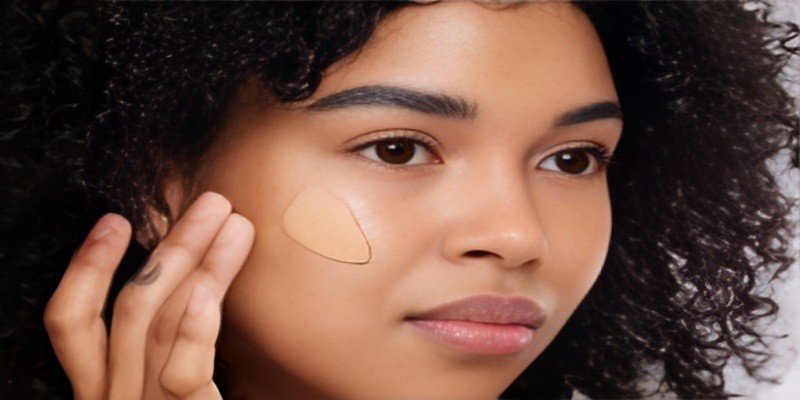Last Updated on June 18, 2025
Finding the perfect foundation for your skin can be a daunting task, especially when you have beautiful black skin. With so many options available in the market, it’s essential to choose a foundation that not only matches your skin tone but also suits your skin type. In this comprehensive guide, we will walk you through the process of selecting the best foundation for black skin. From understanding your undertone to considering your skin’s unique needs, we’ve got you covered.
How to Pick a Foundation for Black Skin?
When it comes to selecting the right foundation for black skin, several crucial factors come into play. Let’s delve into these aspects to help you make an informed decision:
Understanding Your Skin Undertone
Your skin undertone plays a vital role in choosing the perfect foundation shade. Black skin can have warm, cool, or neutral undertones. To determine your undertone, look at the veins on your wrist. If they appear green, you have a warm undertone. If they appear blue, you have a cool undertone, and if you can’t quite decide, you likely have a neutral undertone.
Selecting a foundation shade that matches your undertone will ensure a harmonious and natural look.
Considering Your Skin Type
Black skin can vary in terms of skin type, from dry to oily and combination. It’s crucial to choose a foundation that caters to your specific skin needs. If you have dry skin, opt for a hydrating foundation formula with moisturizing ingredients. For oily skin, go for a matte or oil-free foundation to control shine. Combination skin requires a balanced foundation that addresses both dry and oily areas.
Testing Foundation Shades
Before making a purchase, always test foundation shades on your jawline or the back of your hand. The ideal shade should seamlessly blend with your skin, leaving no noticeable demarcation. Don’t forget to check the shade in natural daylight for the most accurate results.
Finding the Right Formula
The foundation formula you choose depends on your personal preferences and skin concerns. Liquid foundations provide a natural finish and are suitable for most skin types. Cream foundations offer full coverage and work well for those with uneven skin tone. Powder foundations are ideal for oily skin as they provide a matte finish.
Checking for SPF Protection
Protecting your skin from the sun’s harmful UV rays is essential. Many foundations come with built-in SPF protection. Consider opting for a foundation that offers SPF to shield your skin from sun damage.
Considering Skin Sensitivities
If you have sensitive skin, it’s crucial to choose a foundation that is hypoallergenic and free from harsh chemicals or fragrances. Look for foundations labeled as suitable for sensitive skin to avoid any adverse reactions.
Assessing Longevity
Depending on your daily activities, you may need a foundation with long-lasting wear. Look for foundations that claim to be long-wearing or transfer-resistant if you require makeup that lasts throughout the day.
Seeking Professional Advice
If you’re still unsure about choosing the right foundation, don’t hesitate to consult a professional makeup artist. They can provide personalized recommendations based on your skin’s unique characteristics.
Frequently Asked Questions
Can I use the same foundation shade year-round?
Yes, you can use the same foundation shade year-round if your skin tone remains consistent. However, some individuals may experience slight changes in skin tone due to sun exposure or seasonal variations. In such cases, you may need to adjust your foundation shade accordingly.
What is the best way to apply foundation for black skin?
The best way to apply foundation for black women is to start with a clean and moisturized face. Use a makeup sponge, brush, or your fingertips to apply the foundation evenly, blending it into your skin. Make sure to blend along the jawline and neck to avoid any noticeable lines.
How do I choose a foundation that won’t clog my pores?
To choose a foundation that won’t clog your pores, look for labels like “non-comedogenic” or “oil-free.” These formulations are less likely to cause pore blockage and breakouts. Additionally, avoid foundations with heavy, creamy textures if you have acne-prone skin.
Should I use a primer before applying foundation?
Using a primer before applying foundation can help create a smooth canvas, improve makeup longevity, and minimize the appearance of pores and fine lines. It’s a great addition to your makeup routine, especially if you want a flawless finish.
Can I mix two foundation shades to get the perfect match?
Yes, you can mix two foundation shades to achieve your desired color match. This is particularly helpful if you have a unique skin tone that is challenging to match with a single shade. Experiment with mixing until you find the perfect blend for your complexion.
Is it essential to set my foundation with powder?
Setting your foundation with powder is optional but can help control shine and increase the longevity of your makeup. If you have oily skin or live in a humid climate, using a translucent setting powder can be beneficial.
Conclusion
Choosing the right foundation for black skin doesn’t have to be overwhelming. By understanding your undertone, considering your skin type, and testing various shades and formulas, you can confidently pick a foundation that enhances your natural beauty. Remember to prioritize SPF protection, check for skin sensitivities, and seek professional advice if needed. With the right foundation, you can achieve a flawless and radiant complexion that showcases your unique beauty.


